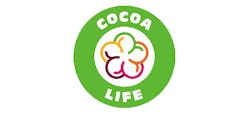Mondelez International is Reducing Emissions in Cocoa Supply Chain
In an effort to reduce emissions in its cocoa supply chain across Ghana, on January 17 Mondelēz International signed a Memorandum of Understanding with the Forestry Commission of Ghana, Ghana Cocoa Board and United Nations Development Program (UNDP).
"Deforestation makes up the largest part of our carbon footprint, which is why it's so important for us to address this issue head-on," says Hubert Weber, president, Europe at Mondelēz International. “Through this collaboration, we can be even more efficient in safeguarding the environment and helping cocoa farmers become resilient against climate change."
Working with Cocoa Life, Mondelēz International's signature sustainable cocoa sourcing program, the company will take a leading role in implementing projects to deliver the Ghana Cocoa Forest REDD+ Program (GCFRP) which aims at tackling deforestation and forest degradation.
Since 2013, Cocoa Life has worked with the Ghana Cocoa Board and UNDP to promote environmentally sustainable production practices while conserving ecosystems and natural resources in cocoa landscapes across Ghana. Mondelēz International is also a founding member of the Cocoa & Forests Initiative, in which 12 leading cocoa and chocolate companies are partnering to reduce deforestation in the cocoa supply chain.
As one of the largest cocoa-producing countries, Ghana supplies about 20% of the world's cocoa. According to the GCFRP, Ghana also has one of the highest deforestation rates in Africa at 3.2% per annum. This is primarily due to an unsustainable expansion of cocoa and other agricultural crops.
Mondelēz International is contributing $5 million over five years to the GCFRP, which aims to significantly reduce the high rate of deforestation and forest degradation, as well as their associated greenhouse carbon emissions, from cocoa farming within Ghana's High Forest Zone.
Together with these partners, Mondelēz International will execute an action plan in key Hotspot Intervention Areas, focusing on:
- Mapping all land uses, including cocoa farms
- Implementing climate-smart cocoa practices to increase yields and sustainability
- Improving access to finance to foster good practices by farmers and communities
- Legislative and policy reform to support program execution
- Coordination and measurement, reporting and verification.
